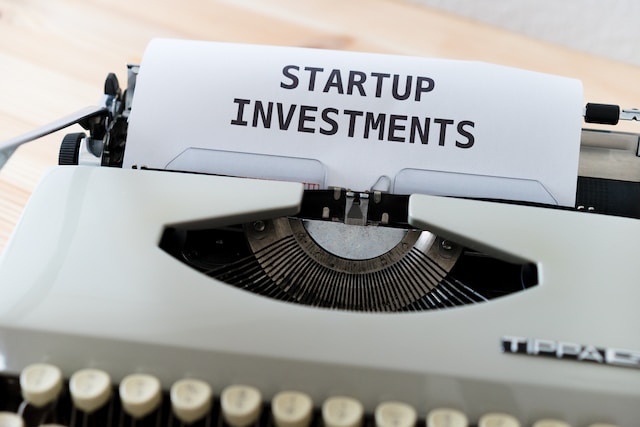South Korea's Foreign Investment Landscape: Trends, Opportunities, and Challenges

In 2021, global foreign direct investment (FDI) flows soared to USD 1.58 trillion, marking a significant 64% increase from the previous year, largely fueled by robust merger and acquisition (M&A) markets and growth in international project finance. South Korea, a key player in this arena, has shown intriguing FDI dynamics, with its unique combination of rapid economic development and advanced technology sectors drawing global attention. However, the global landscape of FDI experienced a dramatic shift in 2022, influenced by factors such as the Ukraine war and ongoing pandemic effects, posing new challenges and shaping investment trends in South Korea and beyond.
Global FDI Trends and South Korea's Position
The recovery of FDI in 2021 was a testament to the resilience and dynamism of the global market. M&A activities thrived, and international project finance grew, spurred by relaxed financing conditions and significant infrastructure stimulus packages. However, 2022 brought a paradigm shift. The ongoing conflict in Ukraine and the triple crisis of food, fuel, and finance globally led to increased investor uncertainty. This uncertainty contributed to a notable decrease in FDI flows, with the second quarter of 2022 experiencing a 31% drop from the first quarter and a 7% decrease from the 2021 average. South Korea, amidst these global shifts, witnessed a fluctuation in its FDI inflows, reflecting the broader uncertainties in the international investment landscape.
South Korea's FDI Performance and Sectoral Insights
In this fluctuating environment, South Korea's FDI figures have been a mixed bag. UNCTAD's 2022 World Investment Report highlighted a 9% decline in South Korea's FDI to USD 8.76 billion in 2020 from USD 9.63 billion in 2019, before a rebound to USD 16.82 billion in 2021. The country's FDI stocks also showed an increase, from USD 135 billion in 2010 to USD 263.25 billion in 2021. Despite challenges like a sharp decline in cross-border M&As in 2020, South Korea maintained robust FDI inflows in key sectors, particularly in emerging technologies like AI, big data, cloud computing, electric cars, and biotechnology. These sectors, showing a 9.3% growth in FDI inflows to USD 8.4 billion, underscore the country's strong positioning in technology and innovation-driven industries.
Investment Sources and Preferred Sectors
Analyzing the source of these investments reveals a diverse international interest in South Korea's economy. Japan, the United States, the Netherlands, and the United Kingdom are among the major investors, with a predominant focus on sectors like manufacturing, finance and insurance, trade, hospitality, and real estate. This diverse portfolio of investing countries and sectors illustrates South Korea's multifaceted appeal to global investors, driven by its advanced economic infrastructure and technological prowess. Furthermore, the country's ranking at 16th on the AT Kearney Foreign Direct Investment Confidence Index 2022 highlights its growing attractiveness as a destination for foreign investment.
Challenges and Government Measures
Despite its strengths, South Korea faces challenges in attracting FDI, including regulatory opacity and the dominance of large industrial groups (chaebols). High labor costs, an aging population, and regional tensions also pose significant hurdles. Recognizing these challenges, the South Korean government has enacted measures like the Foreign Investment Promotion Act, offering tax support, cash grants, and industrial site support to encourage FDI. These measures, alongside increased cash incentives for foreign companies, are part of a broader strategy to enhance South Korea's appeal as a lucrative investment destination.
Conclusion
As we navigate the uncertain terrain of global economics in 2022 and beyond, South Korea's foreign investment landscape presents a complex yet promising picture. Balancing its inherent strengths with ongoing challenges, the country continues to evolve as a key player in the global FDI arena. Investors looking towards South Korea must weigh these dynamic factors, from the resilience of specific sectors to the evolving regulatory environment, to make informed decisions in this vibrant market.
Pearson & Partners: Your Expert Partner in Korean Market Expansion. Are you considering expanding your business into the dynamic Korean market? Let Pearson & Partners be your guide. We specialize in providing comprehensive visa acquisition and tax accounting services, ensuring a seamless transition. Our team is adept at navigating the complexities of Korean regulations, guaranteeing a compliant and smooth business setup. We're here to assist you every step of the way. Contact us today for expert guidance that’s precisely tailored to meet your unique business objectives and regulatory needs.
.png?width=1656&height=121&name=rsz_%EB%A1%9C%EA%B3%A0%ED%88%AC%EB%AA%85%20(8).png)

